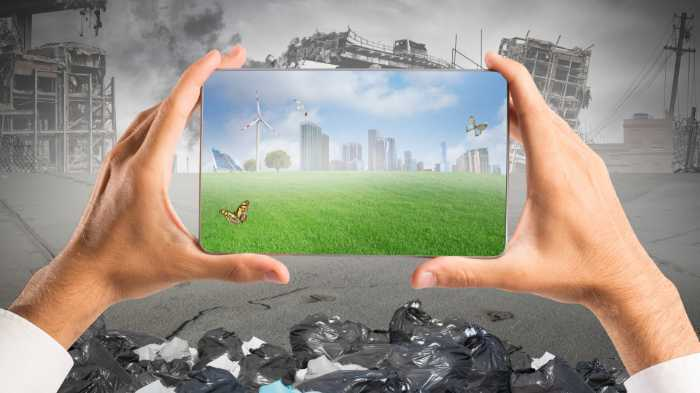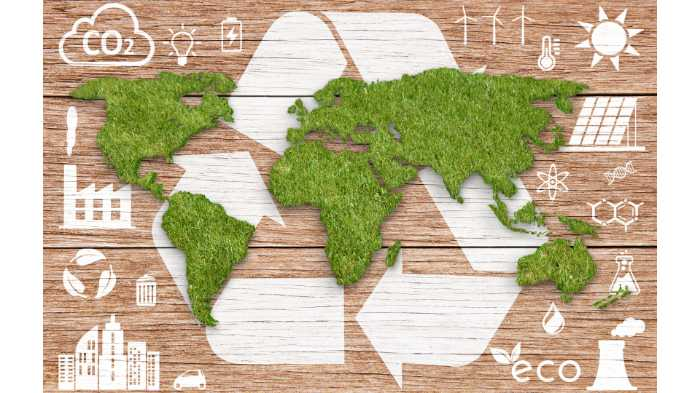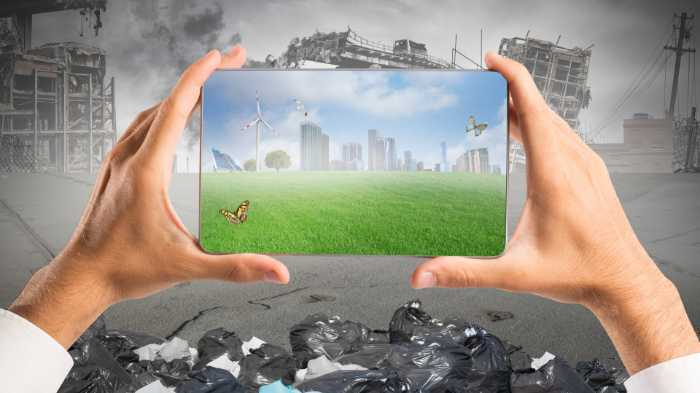
The World Business Council for Sustainable Development (WBCSD) is a global organization made up of over 200 leading companies from over 60 countries. Its mission is to promote sustainable development through business action. They work with governments and other organizations to develop policies and practices that will help businesses become more environmentally and socially responsible. In this blog post, we will discuss the work of the WBCSD and how they are helping to make the world a more sustainable place!
What is the World Business Council for Sustainable Development (WBCSD)?
The World Business Council for Sustainable Development (WBCSD) is a coalition of over 200 international companies that are committed to promoting sustainable development. The WBCSD was founded in 1995, and its members represent a wide range of industries, including agriculture, forestry, mining, oil and gas, and manufacturing. The Council provides a platform for companies to share best practices, develop new technologies, and advocate for policies that support sustainable development. In addition, the WBCSD works with governments, NGOs, and other stakeholders to promote sustainable business practices. As the world’s population continues to grow and put pressure on natural resources, the WBCSD’s work is more important than ever. By promoting sustainable development, the WBCSD is helping to ensure that businesses can thrive in the long term while also protecting the environment.
What is the mission of WBCSD?
World Business Council for Sustainable Development is a CEO-led organization of forward-thinking companies that galvanizes the global business community to create a sustainable future for all.
WBCSD’s mission is to accelerate the transition to a sustainable world in which people and nature thrive by building bridges between companies, governments, civil society, and investors.
The Council acts as a catalyst to drive action on pressing sustainability issues and mobilize collective expertise and insights to enable member companies to prosper, create jobs, and build shareholder value – all while contributing to a healthier planet.
WBCSD is uniquely positioned to convene key stakeholders from business, government, and civil society around specific sustainability challenges.
Through multi-stakeholder dialogues, pioneering projects, and advocacy at the highest level of decision-making, WBCSD contributes actively to shaping the global agenda on sustainable development.
World Business Council for Sustainable Development strives to convene what it calls the “Golden Triangle” – local companies, national governments, and international organizations – with the intent of unlocking the full potential of sustainable development.
You can’t improve what you don’t measure.
Free Verified Carbon Calculators.
Erase Your Carbon Footprint in less than 5 Minutes
Personal Carbon Footprint Calculator
Business Carbon Footprint Calculator
How does WBCSD promote sustainable development?

The World Business Council for Sustainable Development (WBCSD) provides a platform for its member companies to share best practices, identify gaps and areas for improvement, and collaborate on solutions that drive sustainable development.
The Council also engages with key stakeholders on critical issues related to sustainable development, such as climate change, access to water and sanitation, and responsible supply chain management. Ultimately, the goal of the WBCSD is to create a more sustainable world by catalyzing action from the business community.
The WBCSD promotes sustainable development through a number of initiatives and programs. For example, the “Vision 2050” project provides a roadmap for businesses to achieve net-zero emissions by 2050 so that the projected world population of over 9 billion can live well.
The “Partnering for Green Growth and the Global Goals 2030” initiative helps businesses align their strategies with the UN Sustainable Development Goals. And the “Business Action for Climate” program encourages businesses to take action on climate change. By leading these initiatives and others like them, the WBCSD is helping to accelerate progress towards a more sustainable future.
Is WBCSD an NGO?
The World Business Council for Sustainable Development (WBCSD) is a non-profit organization made up of companies that are committed to sustainable development. Members of the WBCSD work together to find practical solutions to the world’s toughest challenges, such as climate change, water scarcity, and poverty. While the WBCSD is not an NGO, it does work closely with a number of NGOs, including the UN Global Compact, to create a more sustainable future for all.
What is the impact of regional business councils of WBCSD?
The World Business Council for Sustainable Development (WBCSD) is a global, CEO-led organization working together to accelerate the transition to a sustainable world. Through its regional business councils, the WBCSD provides a platform for companies to share best practices and develop impactful business solutions to some of the world’s most pressing sustainability challenges. The WBCSD’s regional business councils are located in Africa, Asia Pacific, Europe, Latin America, North America, and the Middle East.
Each Council is led by a steering committee of regionally-based member company CEOs and senior executives. The councils work closely with the WBCSD’s partner organizations, which include the United Nations, the Financial Stability Board, and the International Chamber of Commerce. By leveraging the expertise and resources of its member companies, the WBCSD is able to develop innovative, practical, and sustainable solutions that address today’s most pressing sustainability challenges.
In conclusion in a Sustainable World
The World Business Council for Sustainable Development (WBCSD) is a CEO-led organization that provides a platform for sustainable development sharing between companies. By working together, the WBCSD helps businesses catalyze action towards a more sustainable future. Through its regional councils, the WBCSD develops impactful solutions to pressing sustainability challenges faced by people all over the world. By leveraging the expertise of its member companies, the WBCSD is making progress towards a more sustainable future for all. The WBCSD is an important organization because it helps businesses work together to achieve sustainability. However, the WBCSD is just one piece of the puzzle when it comes to creating a sustainable future. To truly make progress, we need to continue working together towards this common goal.
FAQs

What is the Climate Disclosure Standards Board?
The Climate Disclosure Standards Board (CDSB) works with businesses and investors to develop voluntary, consistent frameworks for measuring, reporting, and communicating the climate-related risks and opportunities that are material to organizations. The disclosure of climate-related information can help businesses to take advantage of new opportunities, reduce risks, and increase the flow of climate-related financial capital. It can also help investors to make better-informed decisions. CDSB’s frameworks are widely used by companies in a variety of sectors and have been endorsed by organizations, including the United Nations Environment Programme Finance Initiative (UNEP FI).
What is the circular economy?
The circular economy is an economic system where resources are used and reused for as long as possible. This contrasts with the traditional linear economy, where resources are used once and then discarded. The concept of the circular economy has gained traction in recent years as a way to be more sustainable and reduce waste. A key part of the circular economy is the idea of a “closed-loop,” where waste from one process becomes the raw material for another process. This can happen within a single company or across multiple SDG companies in a value chain. There are already many examples of businesses implementing closed-loop systems, and the benefits of doing so are becoming increasingly clear. Not only is it more environmentally friendly, but it can also lead to economic benefits such as cost savings and new revenue streams. As awareness of the circular economy grows, it is likely that more and more businesses will start to adopt its principles.
How important is sustainable development for developing countries?
Sustainable development is important for developing countries because it leads to economic and environmental improvements. Enhancing sustainable development can help countries improve their accounting and business practices, as well as their energy and resource use. There are many successful case studies of businesses and countries that have implemented successful sustainable development practices. These practices often have a positive impact on the economy and the environment. Data from these success stories can be used to develop impactful business solutions in other sectors.

Dean Emerick is a curator on sustainability issues with ESG The Report, an online resource for SMEs and Investment professionals focusing on ESG principles. Their primary goal is to help middle-market companies automate Impact Reporting with ESG Software. Leveraging the power of AI, machine learning, and AWS to transition to a sustainable business model. Serving clients in the United States, Canada, UK, Europe, and the global community. If you want to get started, don’t forget to Get the Checklist! ✅
